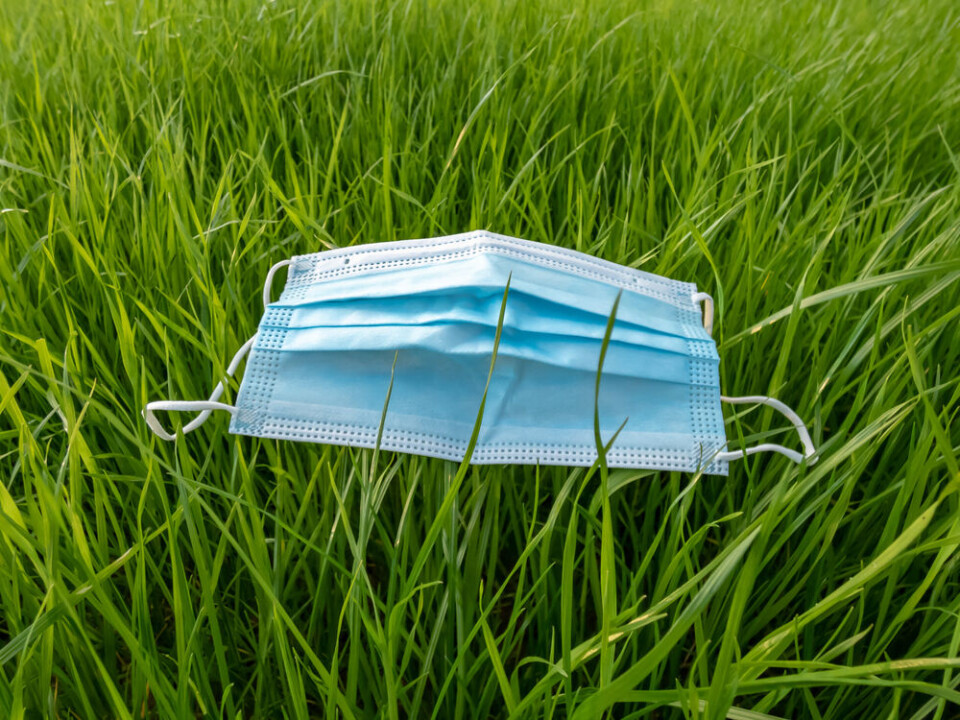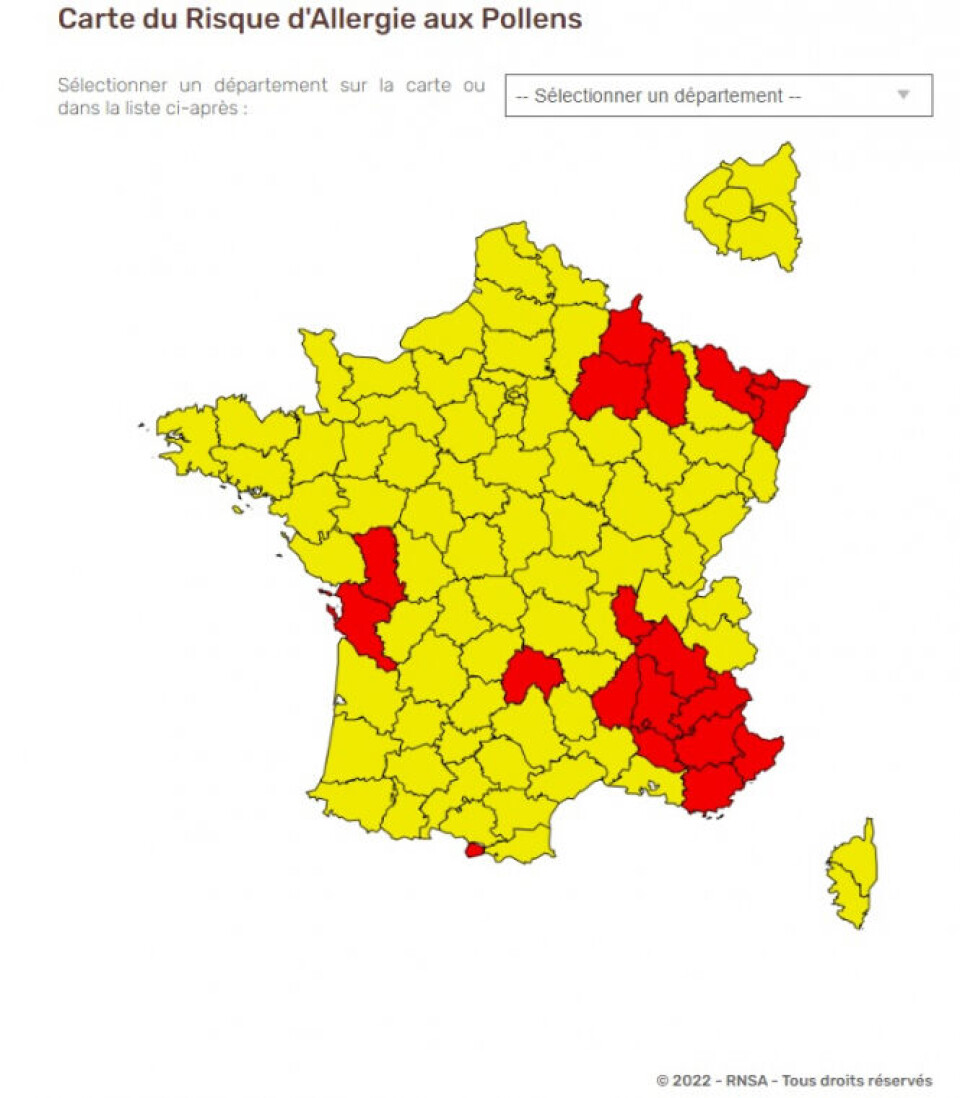-
25 Grand Frais stores to open in France as American investors prepare to purchase chain
Expansion would mean 3,000 new jobs
-
How to lower the amount you pay for insurance in France
‘Big three’ insurances all set to see costs rise in 2026
-
France’s end-of-year tips: how much to give firefighters, cleaners, and waste collectors
Informal tips known as ‘étrennes’ are widespread practice
Allergies in France: Do anti-Covid masks protect against pollen?
As pollen counts rise, one study and a leading allergy doctor suggest that anti-Covid masks may help protect against allergies – but it depends on the mask

As pollen counts rise in France, one study suggests that anti-Covid masks could help protect allergy sufferers - but not all masks offer the same effect, a doctor has warned.
Air quality network le Réseau National de Surveillance Aérobiologique (RNSA) warned on Friday, May 6 that “concentrations of pollen are rising across the country, and will be stronger and stronger over the next few days”.

The Pollens.fr website offers updates on the pollen risk across the country (update: May 6)
The Health Ministry in France estimates that 30% of people in France suffer from pollen allergies, with some more allergic to grass pollen, which occurs between the end of April and June, and others more sensitive to tree pollen, which tends to arrive earlier, between March and April.
But with people having become used to wearing a mask outdoors in the past two years as a result of Covid, the question has arisen: Does wearing an anti-Covid mask protect against allergies too?
Answer: Yes and no.
Dr Annick Barbaud, head of the dermatology and allergy department at Tenon Hospital, in the 20th arrondissement in Paris, told Le Figaro: "It was found during the pandemic years that people who went out with masks had fewer [allergy] issues.”
This was especially true for people who suffer sensitivity around the nose and eyes. In contrast, people with asthma still suffered.
However, because pollen is inhaled, the level of protection offered depends on the mask worn. FFP2 masks, unsurprisingly, have been found to offer more protection than cotton, homemade or surgical-style masks.
One German study from July 2021 found that people with pollen allergies suffered fewer reactions when wearing a medical mask, and an FFP2 mask.
Dr Barbaud explained why FFP2 masks are likely better filters, saying: “If a mask is capable of filtering a virus, it will be for a pollen, as pollen [particles are] bigger.”
Fabric masks that are washed often may also offer some protection, the German study showed, especially when it came to allergic reactions in the nose and eyes. Fabric masks that are not washed often barely offered any protection, it found.
Existing advice to reduce allergic reactions still stands. This includes:
- Taking over the counter antihistamines
- Washing your face regularly
- Washing or rinsing hair every evening before bed
- Avoiding hanging washing outdoors
- Opening windows in the morning or evening, and not during the hottest part of the day
Related articles
Allergy alert: Birch pollen to arrive in northern France this week
Red alert for birch pollen across most of northern France
Red pollen allergy alerts issued for south and southeast France
























